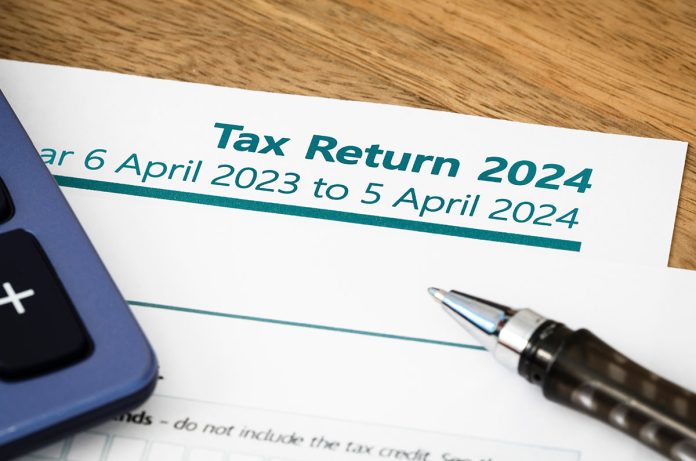There are many instances where you may be required to submit a self-assessment tax return. For example, if you are a limited company director, you receive income from savings or investments, or you have an annual income of £150,000 or more paid via PAYE. Our latest article will answer the most commonly asked question: “Do I need to complete a self-assessment tax return?”.
What is a self-assessment tax return?
HMRC uses self-assessment to collect Income Tax. Tax is usually collected from pensions, savings, and wages. However, businesses and people with other income must report it in a tax return submitted to HRMC by 31st January.
Do I need to complete a self-assessment tax return?
You are required to complete and submit a self-assessment tax return for the last tax year (6th April to 5th April) if any of the following apply:
- You are the director of a limited company and get paid via dividends
- You receive money from renting out a property
- You have to pay the High Income Child Benefit Charge
- You were self-employed as a sole trader and earned more than £1,000 (before deducting anything you can claim tax relief on)
- You get tips or commission
- You have an annual income of £150,000 or more paid via PAYE
- You receive foreign income
- You are a higher rate or additional rate taxpayer and make contributions to a pension scheme
- You had to pay Capital Gains Tax when you ‘disposed of’ or sold something that increased in value
- You receive income from savings, dividends, or investments
- You receive any other untaxed income specified by HMRC
If you are unsure whether you need to complete a self-assessment tax return, you can check on the government’s website.
How do I complete a self-assessment tax return?
If you need to complete a self-assessment tax return, here are the steps you’ll need to take:
Register for self-assessment
The registration process will depend on whether you are registering as a partnership, self-employed, or not self-employed but receive other income. If you have not sent a tax return before, you must register for self-assessment by 5th October. If you’ve registered before but did not send a tax return, you must register again to reactivate your account. You can register online.
Get your Unique Taxpayer Reference (UTR) number
Once you’ve registered, you’ll receive a UTR by post in 15 working days if you are in the UK or 21 days if you are abroad. Please note that it may take longer in busy periods.
Activate your Government Gateway account
Once you’ve received your UTR, you can activate your Government Gateway account. The activation code will be sent in a separate email. You’ll need this code to complete the account’s setup.
Complete your self-assessment tax return
When you submit your tax return online, you only need to fill out the sections that apply. There are two sections to a self-assessment tax return. The main section is the SA100, which deals with:
- Taxed and untaxed income in the form of interest and dividends
- Pension contributions
- Charitable donations
- Benefits including, Child Benefit, State Pension, and Blind Person’s Allowance
You may need to complete supplementary pages if you have income to declare as a company director, income from self-employment, income as a foreign national (or dual resident), income from abroad, or have to declare Capital Gains.
You only need to complete an SA200 tax return if HMRC sends it to you.
What is the deadline for completing a self-assessment tax return?
Submitting a paper return
The deadline for submitting a paper tax return to HMRC is the 31st October. If you are a trustee of a registered pension scheme or a non-resident company, the deadline for submitting a paper return is the 31st January.
Submitting a tax return online
You can also file a self-assessment tax return online; the deadline is 31st January.
Please visit the government’s website for more information about the deadline for submitting a tax return.
What is the penalty for missing the self-assessment tax return deadline?
If you miss the self-assessment tax return deadline, you will receive a penalty for submitting your return late or paying your bill late.
You’ll receive a late filing penalty of £100 if your tax return is up to three months late. The late filing penalty will increase the later you submit your tax return and if you pay your tax return bill late. You’ll also be charged interest on late payments.
If your tax return is over three months late or you have a late payment, you can estimate your penalty on the government’s website.
Check out our self-assessment comparison tool
Hundreds of accountants in the UK provide self-assessment services, and finding the best deal or provider best suited to you can be time-consuming. We’ve created a self-assessment comparison tool to help you find the best provider for your requirements. Our self-assessment comparison tool is free to use and can help you make an informed decision whilst potentially saving you money!
We’ve also created over 20+ categories of helpful information, providing all the information you need to navigate the complex world of self-assessment tax returns! Please click here or access the different categories via the menu and homepage.
